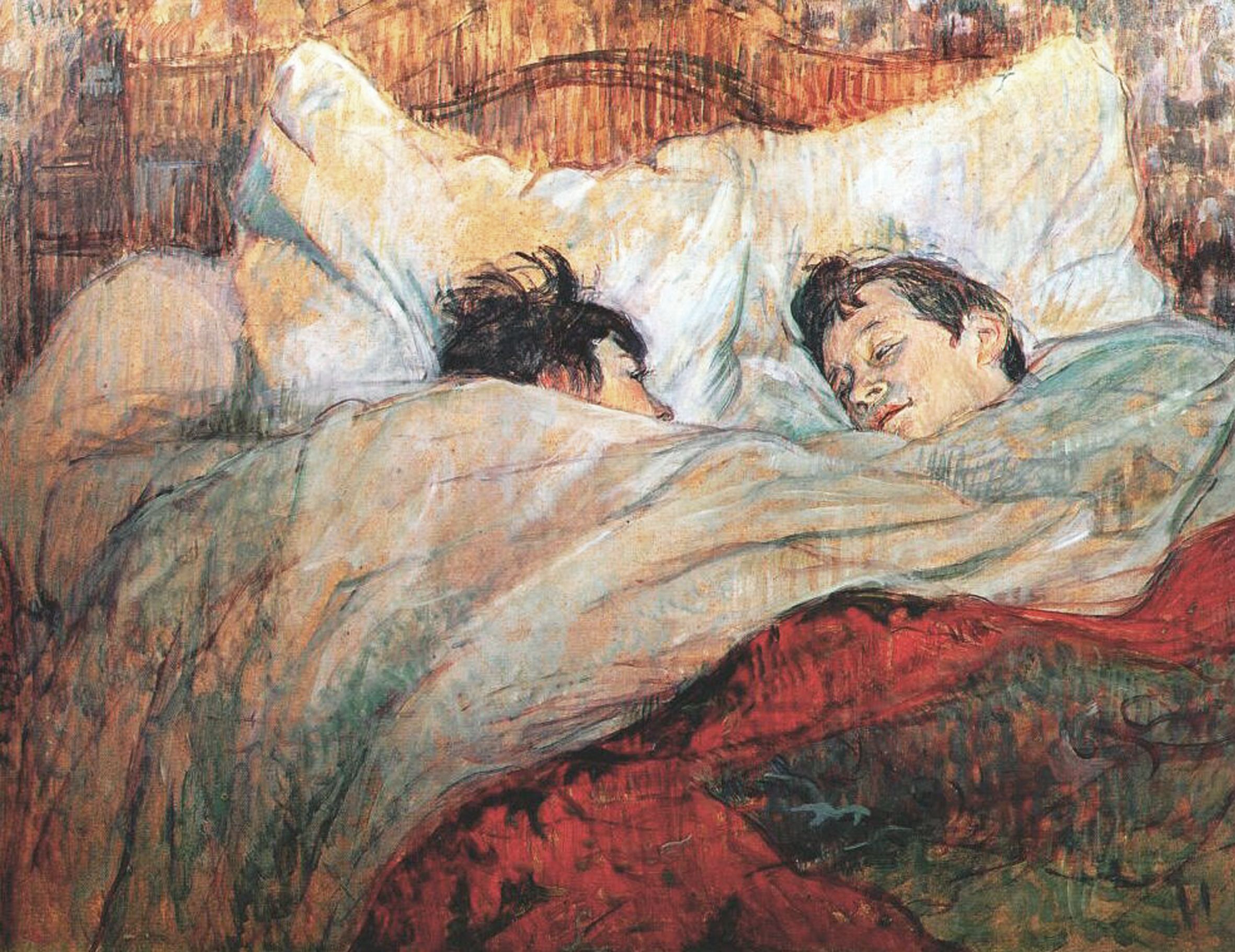
There were a whole load of Degas and Monet and Van Gough as well, and those were all great to see. But the Lautrecs... oh the Lautrecs...
His simplified line, his exaggeration of facial features, his colour pallette, the emotional insight...
So that was on my last day in Paris. And after me and Lauren went to the Musee D'Orsay, I decided we should probably do something that Lauren wanted to do. And Lauren had been in Paris for about five days, and had not done any shopping yet.
This was obviously insane.
So we trotted off to the Chomps D'Elysee or whatever that famous shopping street is called, for Lauren to do her French shopping. Because we hadn't timed it very well, though, it turned out we only had about half an hour. So she really only had enough time to have a good look around one of the shops there. And the shop she chose - the shop she chose to spend the last half an hour of shopping time on the most famous street in the most famous fashion city in the world, was Marks & Spencer. Which is English. And she's going to be in England in less than a week. Sooo... who knows what that was about.
After that we had to catch the Metro back to meet mum and dad. We'd timed it perfectly - we were going to arrive at the Metro station where mum and dad were right on the appointed meeting time. The train headed down one stop, opened its doors, let everybody off and everybody on, and then... just sat there. While trains whizzed by in the other direction. For about 20 minutes. After fifteen minutes, a lady came over the loudspeaker in the train and said... something. Even if it wasn't in French, or even if I could speak French, I'm sure I still wouldn't have had any clue as to what the hell the woman was saying, since the audio was about as good as tin cans attached by a piece of string, but since it was in French, and since I don't speak French, and since Lauren's claustrophobia was playing up massively as more and more people continued to pile on this already overcrowded train, we both looked at each other with panic in our eyes and then... just stood there. For ages.
Well, everybody else seemed to be doing it.
Finally, there was a second announcement, and this one the French at least seemed to understand, as they all piled out of the train angrily, leaving me and Lauren, alone and confused about what the fuck we were meant to be doing.
Eventually we left and hailed a taxi, which was surprisingly not as expensive as I had initially thought it was going to be!
So there's an upside to every spilt milk cloud, as nobody says.
So that was the last day in Paris - we got on our night train, got in our sleeper bed, Lauren had another claustrophobia-based panic attack, we watched the Aristocats, and eventually we went off to sleep.
To wake up in Spain! Which was great, except that the word "sleeper" in the name "sleeper bed"
is a dirty bold-faced lie. No sleeping occurred. So we all walked around Barcelona in a daze, barely able to understand anything that was happening at any point. So pretty much the usual, except we were super damn tired as well.
So yesterday was a bit of a wash, to be honest. It was good, we saw some interesting things, but I was really too tired to appreciate any of them all that much, and by the end of the day I was feeling really nauseous as well, not helped by the fact that Lauren has a pretty bad cold at the moment, and I was sleeping in the same room as her. The same tiny, cramped, airless room. So, hello Snot Town, population: me.
But none of that mattered because today was really good. We went up to the Pyrenees, which is a mountain range on the border of Spain and France. And at first we were all worried because it was raining, and because Lauren definitely has a cold, and I'm probably developing one. And then dad managed to find some really terrible rain ponchos from the tacky-as-hell gift shop, which meant I spent today looking like this:
But I didn't feel quite so stupid, since we were a family of morons:
Note: mum sticking her tongue out weirdly in this picture, also dad's serial killer eyes. So I was less of a moron than everyone else.
Oh, wait, you haven't seen the back of these stupid things. They get so much worse:
So when we first headed out, I was, understandably, not in the greatest of spirits. I was expecting today to be another waste, and I was expecting to come home and complain about how Spain didn't even begin to compare to France.
Then I saw this:
And I thought, "Hey! A donkey. That's cool. Maybe this won't be so bad after all."
And then I continued walking for a little bit, and I saw this:
And it was stunning. The photo hardly does it justice. It was just... so beautiful. The smell of fresh air, the gentle rain on my poncho, the crisp coolness, the mist, the clouds, the trees, the interesting and complex patterns that the rainfall had made on the cliff faces... It was... It was all so... amazing. I am so glad I went, and so glad I wore my stupid poncho.




